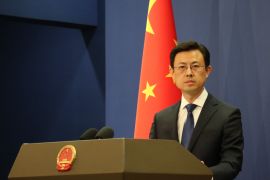Jakarta (ANTARA) - The Indonesian Ministry of Development Planning (Bappenas), together with the United Nations Global Pulse, has shared a joint report on the future of micro, small, and medium enterprises (MSMEs) in Indonesia.
According to a statement received from the United Nations Information Center in Jakarta here on Thursday, the report presents the results of a horizon scanning activity conducted to identify potential emerging issues that could affect Indonesian MSMEs around 10 to 20 years in the future.
“This sector is crucial and often considered the backbone of the Indonesian economy, however, as the recent pandemic and global crises have proven, they are particularly vulnerable to negative shocks. In times of high uncertainty and amidst rapid changes, it is vital to prepare for the unexpected, particularly as it relates to MSMEs,” the statement said.
Bappenas, UN Global Pulse then collaborated on the use of the Strategic Foresight method in order to identify and anticipate what lies ahead. “The foresight method is useful for thinking and acting in a long-term and anticipatory way, which is helpful for ensuring that likely scenarios and assumptions are integrated into policy making.”
Meanwhile, resident coordinator for the UN in Indonesia, Valerie Julliand, said that in order to be effective, they need to be rooted in the particular context in which they will be implemented.
“Strategic foresight is helpful in this regard as it enables anticipatory action and the design of more forward-looking policies. The UN will continue to support the Indonesian government in adapting innovative methods and ensuring that these methods are put to good use for the country and its people,” she said.
Baca juga: Hilangkan stunting jaga daya saing anak di tingkat global
Baca juga: Tak seperti Jakarta, populasi IKN dibatasi 1,91 juta orang
The sector is one that is vital as it provides employment to 97 percent of Indonesia’s total workforce or around 117 million workers, 64.5 percent of whom are women. A number of questions were addressed in the report, including determining key emerging issues for the sectors and what could potentially alter and disrupt the future of MSMEs.
Five were then identified, including climate change, increasing sustainable economic partnerships, the rise of emerging sectors, and changes in consumer preferences.
Pewarta : Aria Cindyara
Editor:
I Komang Suparta
COPYRIGHT © ANTARA 2026









